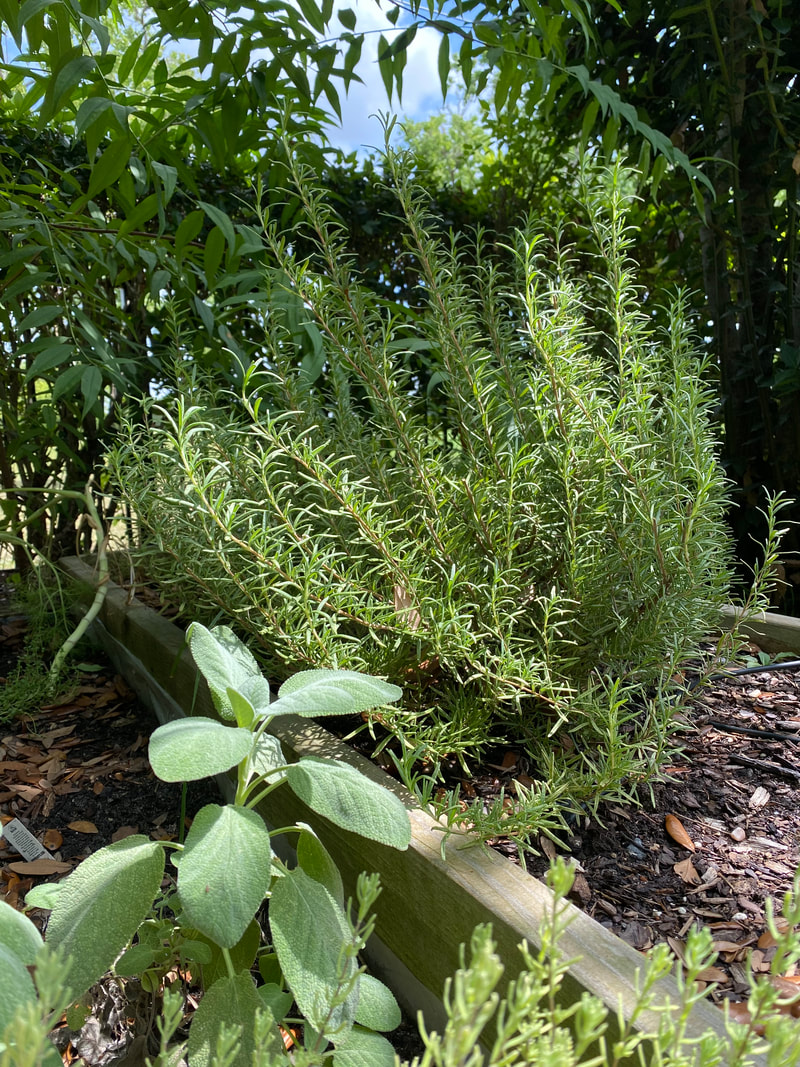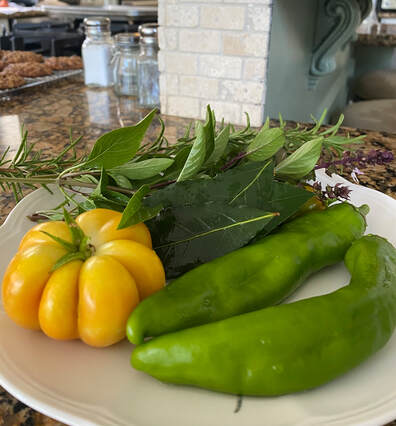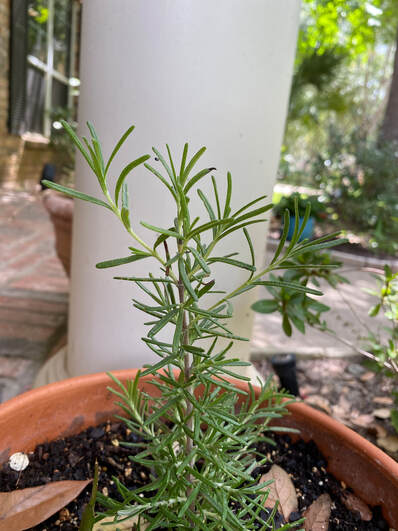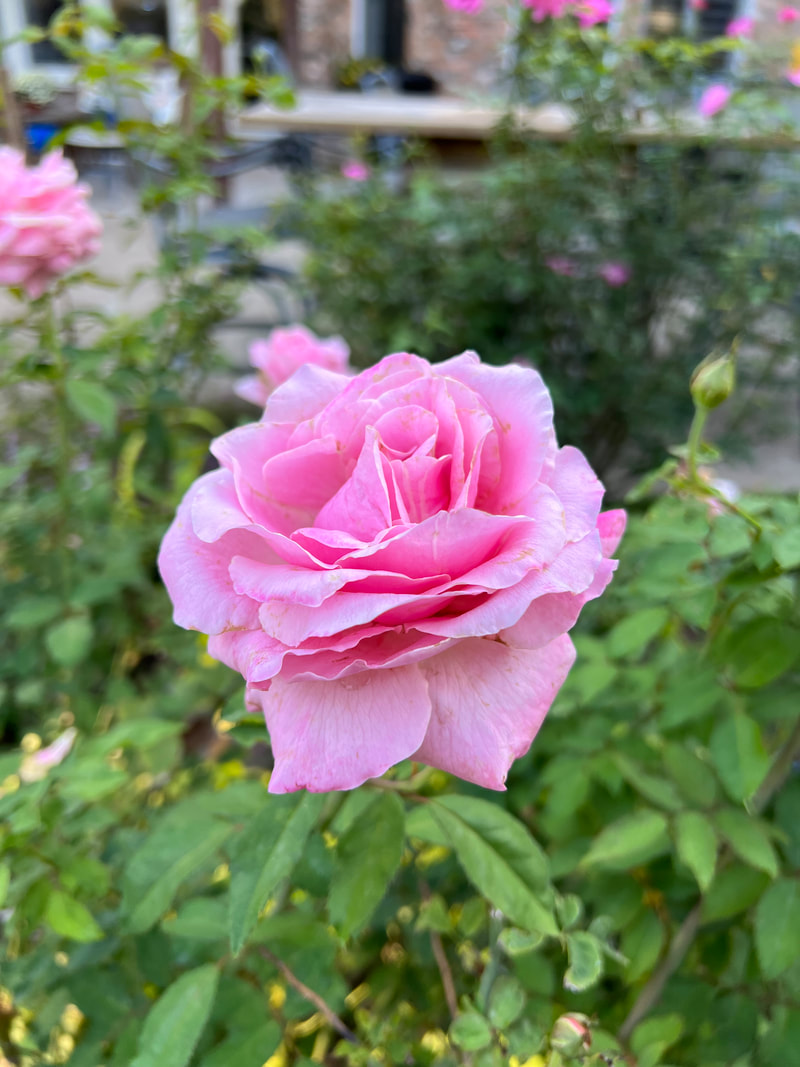|
Rosemary -- Salvia Rosmarinus -- was moved into my favorite botanical genus just a few years ago. For a few hundred years, it was its own genus and the rosemary we know and love was Rosmarinus officinalis. While there had been debates through the years that it really did belong to the Salvia family, no one was willing to make the change. But in 2018, citing all sorts of scientific information, especially from DNA analysis, proponents for the move won out. For rosemary-lovers, it doesn't really matter. For saliva-lovers like myself, it just adds to the attraction. A Mediterranean herb beloved around the world, Salvia rosmarinus is a versatile herb. Renowned for both its fragrance and flavor, it only makes things better. Personally, I love it in the garden. Brushing up against it while weeding or sometimes simply passing close by, I am assailed by its lovely aroma. And of course, when cooking I add it to everything that I can. I just snip a couple of stems and stuff them inside poultry cavities, drop them into soups and stews, lay them atop fish... It adds unmistakable flavor to any dish and the house smells so good whenever rosemary is involved. It also makes a wonderful tea. It works as a digestive. A few days ago, I brewed a tea of rosemary, basil, and bay leaves. It might sound strange, but I wanted to experiment. I'm glad I did. It was a deliciously fragrant tea -- equally good hot or cold. And there are more uses for rosemary. It's an important ingredient in aromatherapy, appreciated for clearing the head. Its fragrance lends itself well to sachets, potpourri, and fire-starter bundles.
Culturally, rosemary has been an important garden plant since ancient times. Romans and Greeks cultivated it. For centuries it has been associated with the Virgin Mary. A close friend of mine from Croatia has told me that in her country, rosemary indicates welcome and is used in religious processions. It is because of her that I have one in a pot near our front door. It's easy to grow, by the way, simply requiring plenty of sun and no over-watering. While it doesn't like wet or even damp feet, it doesn't care about humidity. As a matter of fact, the name rosmarinus comes from the Latin words ros, meaning dew, and marinus, meaning sea. In other words, "sea-dew" or "dew of the sea", which surely indicates it can handle humidity. And have I mentioned that it smells really good?
0 Comments
Leave a Reply. |
Our GardenFor years, my husband and I worked at creating a series of gardens on our four-acre lot in a rural, Texas subdivision west of Houston. I have to say, it was a fantastic experience. Now, I have a pocket garden on a golf course. Archives
June 2024
Categories
All
NewsletterFrom me to you with a smile. Thank you!You have successfully joined our subscriber list. |




 RSS Feed
RSS Feed